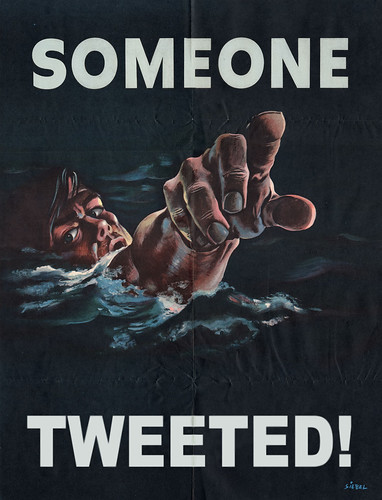Many years ago, my husband was on a flight, and he overheard the two guys in the seat in back of him talking about their work. Now Jim would never be voted the world’s most likely to pick up on loose talk, but it didn’t take him long to figure out that their work was also my work. There was nothing all that terrible about what these fellows were saying – just a few cracks about my boss’ boss – but, because they used last names, Jim was able to pick up on it.
Similarly, I was on a crowded subway a few months back, and there were a couple of young folks complaining about some co-workers. Actually, they weren’t just complaining, they were ranting about how unethical they were. I was close enough to eavesdrop, but not close enough to lean in and tell them that they probably shouldn’t be using last names in this sort of public conversation. (When I got home, I found the names of the people they were trash-talking on LinkedIn, and was easily able to figure out the company they worked for.)
enough to eavesdrop, but not close enough to lean in and tell them that they probably shouldn’t be using last names in this sort of public conversation. (When I got home, I found the names of the people they were trash-talking on LinkedIn, and was easily able to figure out the company they worked for.)
Ssshheesshhhh.. Don’t people know that loose lips sink ships, and that the first rule of corporate chit-chat in public places is NO LAST NAMES.
When I worked at Genuity, one of the major bombs of the dot.bomb era, matters went beyond loose lips. Internal memos had a way of showing up on public bulletin boards before we’d even had a chance to sit around and make fun of them.
Of course, it’s not just corporate types who blab.
The Atlantic online has a copy of a (presumably leaked) memo from James Clapper, the Director of National Intelligence, reminding spooks and info analysts:
…that being in the intelligence business demands serious commitment to our work and an obligation not to share secrets with others, including the media.
Those in the know have been leaking things to the press for years. (Pentagon Papers, anyone?) But these days, it seems to happen more regularly and readily.
Anyway, poor James Clapper is just trying to put a lid on things, and now we’re all reading that he wants to get the word out that “blabbing secrets to the media is not "in" as far as I'm concerned.”
Not “in.”Can’t you just see the eye-rolling, hear the snorting, and see the “quote marks” sign going when co-workers in the world of intelligence gather at the coffee machine to parse this memo?
Now it so happens that, during the Viet Nam era, someone near and dear to me was with The Company, working as a chemist to avoid sweating in the jungles of Southeast Asia. (When he went for his draft physical, the doctor noted his dry skin, and wrote on his papers: “should serve in a moist, warm climate.”) Over the years, I’ve learned about a few tricks of the trade – circa 40 years ago - like how to burn a piece of paper to ensure that the writing on it can’t be read. (You flute the paper, light all the edges, and when it burns down you crumple it. I was delighted to see this trick performed in the Matt Damon movie, “The Good Shepherd.”) And how to extract a letter written on air-mail paper from its envelope without anyone knowing you tampered with it. (Wrap it around a thin piece of wire and pull it out through a tiny opening at the corner of the flap. Please note that it’s a lot easier to take a letter out this way than it is to put it back in.) However, I never learned anything secret-secret. Need to know basis only.
But this was someone from the good old days, when even natural born blabbermouths knew not to blabber.
These days, a good blab is put out there to influence policy and/or get back at the other guy. (Pentagon vs. CIA vs. State Dept.) Or to just to give the leaker his/her 15 minutes of fame, even if it is anonymous. What good is it knowing good stuff if you can’t let people know you know good stuff? And once they know you’re important enough to know good stuff, you may just give in to the temptation to demonstrate just how good the good stuff is.
Of course, it’s not just leaks to the media.
Most of us – in corporate or in government – don’t know anything that “the media” would be all that interested in.
But we Facebook, and blog, and tweet about work. We yack on our cell phones as if there were a cone of silence around us that precludes anyone else from hearing what we’re saying. Or maybe it’s that we want everyone in the world to know what we’re saying, so that they’ll realize that we are savvy, smart, and clever, our observations pithy and trenchant.
Privacy, keep it in the family, company secrets – so yesterday.
All transparency, all the time. (We like it. We love it. Can’t get enough of it.)
So much so that the Director of National Intelligence has to put out a memo reminding people to keep what they know to themselves. Remarkable.

No comments:
Post a Comment